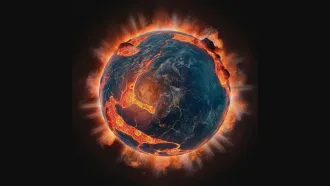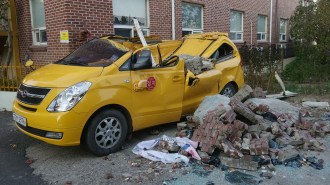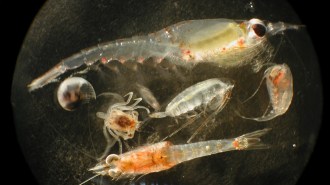Clean out your medicine cabinet: Today!
The feds are offering a free one-day take-back program for unused medicines
For years, people have been chastised for pitching unused drugs into the trash, turning them into potentially toxic pollutants that can leach into the environment. On Saturday, September 25, the Drug Enforcement Administration is offering to take those drugs off our hands. For free. No questions asked.

DEA’s aim isn’t to green our trash but to keep drugs of abuse out of the hands of children — or drug dealers who might sell them on the black market. It’s a big problem. As I noted a few months back, some 1 million Americans enter a hospital emergency room each year from nonmedical overdoses of medicines.
“Prescription drug abuse is the Nation’s fastest-growing drug problem, and take-back events like this one are an indispensable tool for reducing the threat that the diversion and abuse of these drugs pose to public health,” says Director of National Drug Control Policy Gil Kerlikowske. “The Federal/state/and local collaboration represented in this initiative is key in our national efforts to reduce pharmaceutical drug diversion and abuse.”
Fortunately, our nation’s drug cops aren’t restricting acceptance of meds in this take-back initiative to narcotics and other psychoactive agents. They will even accept expired Tylenol.
To find the closest drop-off point, enter your zipcode on the DEA’s website.
More than 3,400 communities across the country have volunteered to take part between 10 a.m. and 2 p.m. local time. In my home town, the drop off is the police department. Elsewhere, it may be a water-reclamation office, church, train station or pharmacy. Drugs will be collected by or for the DEA, then incinerated.
Taking part offers an ancillary benefit: protecting wildlife. As I’ve been reporting for nearly a decade, pharmaceuticals pollute water and landfills throughout the developed world, and even trace concentrations of some drugs can pose risks to fish and other critters. A few discarded drugs have even been detected coming out the tap, since it’s hard to separate many of these chemicals from water once they get in.
Let’s just hope this isn’t a one-time event. Take-back programs should be a municipal service offered at least annually.
Efforts should also be made to stem the flow of excess drugs into the home environment. Indeed, “The very fact that excess drugs accumulate and need disposal points to problems in the way health care is administered,” observes Las Vegas physician Ilene Ruhoy. Keep in mind, she points out, leftover medicines “represent wasted medical care” and health-care dollars.
She offered some good suggestions cut curb the waste, two years ago, at a Society of Environmental Toxicology and Chemistry meeting. Such as trial prescriptions, to see if a medicine will work in a particular patient, and discouraging sales of medicines — even aspirin — in bulk.
Oh, and if there is a next time: DEA should really give all of us a little more notice. The agency announced the program only a little more than a week ago — and on its website, a venue that few of us regularly visit.







